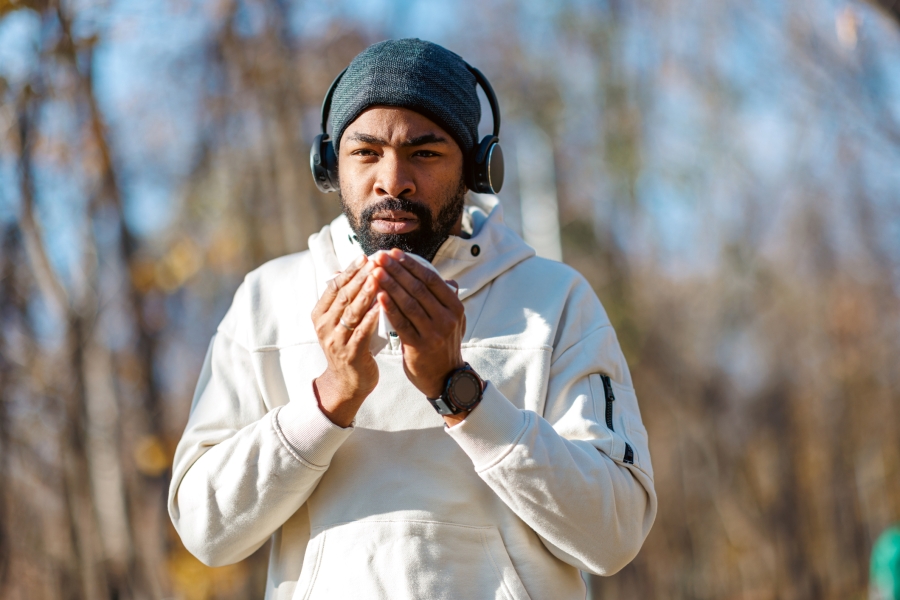Chronic obstructive pulmonary disease (COPD) is a growing women’s health concern. But when women start to notice COPD symptoms, their diagnosis is often delayed.
That matters. COPD is a progressive disease, meaning it gets worse over time. But early treatment can slow that down — and improve quality of life. As a pulmonologist who treats patients with COPD at every stage of the disease, here’s what I want every woman to know about the condition.
Women’s COPD may be missed
Healthcare providers tend to diagnose women with COPD in later stages of the disease than men. They also offer diagnostic spirometry tests to women less often than to men.
One reason: Doctors might not consider the possibility of COPD. For a long time, healthcare providers thought of COPD as a men’s disease, so they may not be as aware of the risk to women.
For years, researchers and care teams focused on the link between smoking and COPD, and most smokers were men. But more women started smoking in the later decades of the 20th century, raising their risk. And evidence suggests that women’s risk may be higher at lower levels of smoking than men. You can learn more about that disparity in my earlier blog about smoking, women, and COPD.
Doctors may also be slower to suspect COPD in people who have never smoked. But we know now that, while smoking is a major cause of COPD, it’s not the only cause. In fact, about 1 in 4 people with the condition have never smoked. And most of those nonsmokers are women.
Another factor that can delay diagnosis is that COPD symptoms may appear differently in women than in men. Women’s symptoms can be mistaken for those of another condition, such as asthma.
That’s why it’s important for women and their doctors to know the early symptoms of COPD - and how they might be different than expected.
Signs of COPD in women
In my practice at the Temple Lung Center, I’ve treated many women with COPD who had first been misdiagnosed with asthma. Knowing how COPD may appear differently in women can help them get the diagnostic tests - and treatment - they need. Here are a few key facts.
COPD may start sooner in women. Most people with COPD are diagnosed after age 60. But it can start sooner, and those with early-onset COPD are far more likely to be women.
Women with COPD may have smoked less - or not at all. Women are more likely to develop lung damage at lower levels of smoking than men. And about 27% of women with COPD never smoked, compared to about 14% of men.
Comorbid conditions may be different. As I explain to my patients, comorbid condition is a term for when people have more than one health condition at the same time. That can make diagnosis more complicated. But because some conditions are more likely to appear together, it can also offer key clues.
For example, in some cases, COPD symptoms like shortness of breath could be mistaken for symptoms of anxiety. But a person can have both anxiety and COPD. And women with COPD are more likely to have anxiety, as well as:
- Depression
- Insomnia
- Osteoporosis
Women may experience more severe symptoms. The common symptoms of COPD for people of all genders include:
- Persistent cough
- Increased mucus production
- Shortness of breath during everyday activities
- Wheezing
- Frequent respiratory infections
- Fatigue
But women are more likely to experience shortness of breath than men are. And their quality of life tends to be more affected than men’s. They experience more COPD flare-ups, and they’re more likely to be hospitalized.
More research data is needed on COPD risk in transgender and nonbinary people, but, as of now, risk seems most closely linked to biological sex. At Temple, our LGBTQ-inclusive care providers can work with you to understand how your medical history, including hormone therapy, might affect your risk for COPD and other conditions.
The Women’s Lung Disease Program offers expert care
At Temple, we’re committed to helping everyone, of every gender, get the high-quality care they need. Our Women’s Lung Disease Program offers comprehensive women’s lung care to address disparities in diagnosis and treatment.
If you’re experiencing symptoms of COPD, turn to the specialists at Temple Lung Center. We offer comprehensive diagnostic and treatment options to help you get the care you need. Request an appointment online or call 800-TEMPLE-MED (800-836-7536).
Helpful Resources
Looking for more information?

